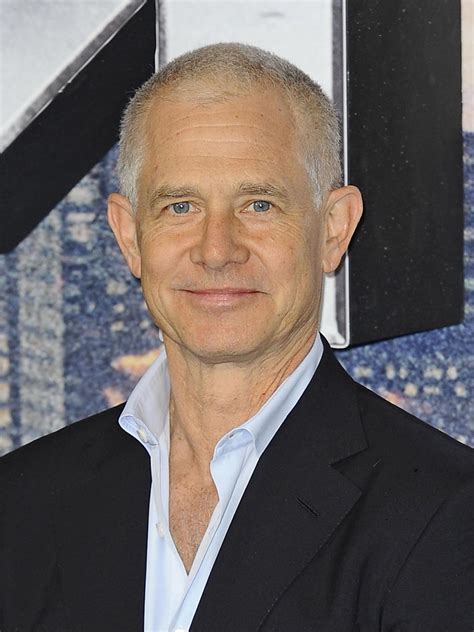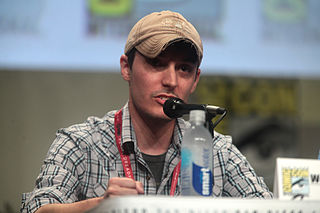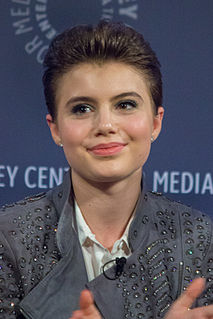A Quote by Hutch Parker
I really think the key to any movie is that you tell the story kind of in a fulsome way, with depth, with skill, and you will find your audience.
Related Quotes
I think the key for us is really letting the stories we feel are best told to kind of dictate where we go. When we find a story we really believe is one that should be told, how do we best tell it and you know what do we need to tell that story most effectively? I think to the good, the universe is such that there are a lot of options, there a lot of opportunities. So that's kind of what's guiding us.
I think science has a better story to tell than anyone else has been able to tell and that's because it's based on the rigorous winnowing that science and scientists are always doing in order to find out what's really happening. I think it's really good to encourage generally our ability to tell stories and that's a great skill that we come by naturally, so I'm excited about that.
When you're out there trying to still figure things out, it can just slow things down. So you have to kind of think on your feet, and it makes it kind of fun and exciting and challenging at the same time. But more time is always better for any movie. I think any director would probably tell you that. Any filmmaker, really.
I think you make the movie in your head that you have to make, and you have to get it out of you. You have all these pretentious reasons why you want to do it, and you set out to accomplish them. And you think "This is important for what I'm trying to accomplish for the story," and I think those reasons will come through to an audience, and they will find it. That's the best you can do.
I'm amazed that I can sit down, put a guitar in my hands and start playing kind of free style, and it will be four hours later and it will feel like it's been five minutes. I think that adds depth to your being, when something in your life can do that for you. Everybody should try to find something in their life that can do that for them. People find really elaborate self-destructive ways of killing time on this planet. That's why they take drugs or drink, trying to alter their state of being. If you can find something that doesn't destroy you, but deepens your character, you're really lucky.
Any kind of sequence when you have to express physical space and time can be difficult to story-tell because, if you're sitting there watching it like it's a play or something, your mind can track what's going on, or if you're watching an actual fight you can kind of track what's going on, but as soon as you have to start telling the story and tracking for the audience, it becomes much more complicated.
I think there's definitely a way to tell a story, to also look at marriages that are working, but find drama from what's challenging them. That's what I think, certainly, 'Parenthood' is kind of about: the unexpected things that come up in your life that challenge you as a man, as a woman, as a husband and a wife, and as a parent.
I've found great virtue in two-thirds of the way into the message; right before I'm really want to nail home a point, pausing to tell a joke or to tell a light-hearted story, because I know my audience has been working with me now for 20 or 25 minutes. And if I can get them to laugh, get oxygen into their system, it wakes up those who might be sleeping, so there's something about using a story to draw people back in right before you drive home your final point. In that case I think it's real legitimate just to use a story for story's sake.
If you have to tell a story without speaking, it's sort of like - I come from a dance background, so it's like a ballet where you have to tell a story with just your body. I think that's really interesting to have to tell a story with just your face and your mannerisms, and I'd like to tap into that world.
I believe in the complexity of the human story, and that there's no way you can tell that story in one way and say, 'this is it.' Always there will be someone who can tell it differently depending on where they are standing ... this is the way I think the world's stories should be told: from many different perspectives.































